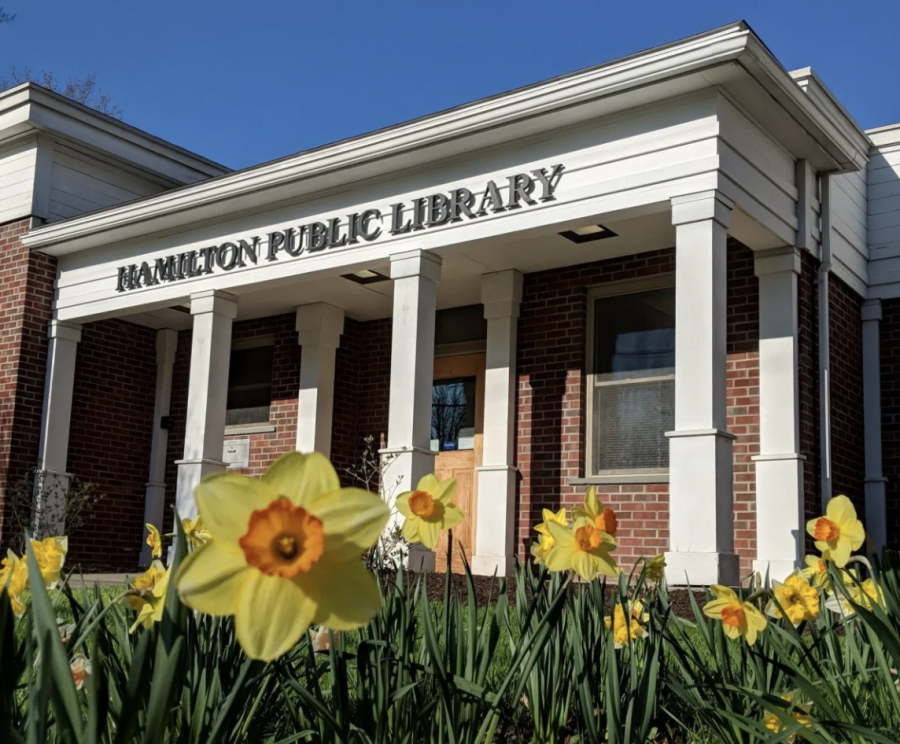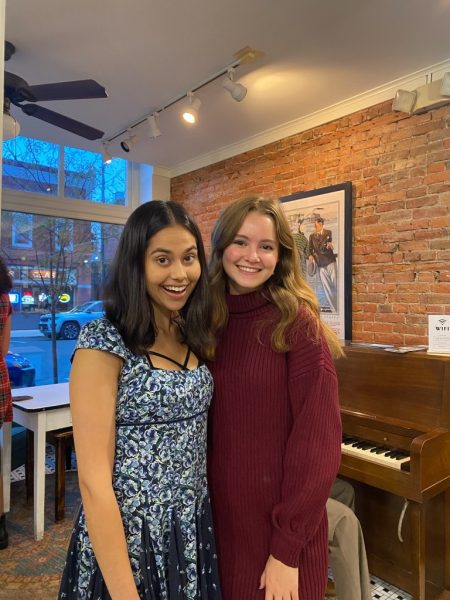Four Colgate Students Turned Away From Hamilton Voting Booth On Election Day
Four Colgate students were turned away from voting at the Hamilton Public Library between 10:30 a.m. and 11:00 a.m. on Election Day because they were not registered to vote in Hamilton, despite having the right to vote through an affidavit, according to first-year Shenice Mobely, one of the involved students and College Democrats President junior Reed Cleland. The group of four included both men and women.
Mobley said she and the other students were registered in their hometowns, and while she was frustrated to be denied a vote, she wasn’t surprised when they were turned away at the polls. However, the poll worker did not inform the students about an affidavit ballot, according to Cleland. Whether the poll worker had previous knowledge of this information remains unclear.
The Colgate College Democrats broadcasted the incident on Tuesday, Nov. 3 via an Instagram story, encouraging the students or those aware of the students’ identities to direct them to the Colgate College Democrats for help casting their ballots.
Mobley said it was through this post that she found out about her right to affidavit after a friend saw the College Democrats’ Instagram story later in the day.
“The post was encouraging those students to reach out to the group to find out how to get their votes submitted. I reached out to the group and Reed Cleland informed me that I can request an affidavit ballot, and so then I headed to the polling place and submitted my ballot,” Mobley said, who was able to cast her affidavit ballot along with the other affected students.
Despite finding out about her right to an affidavit through the Instagram story, Mobley said she was frustrated initially that her identities were called out specifically in the post, saying that “one [of the students] was a woman of color from Brooklyn.”
“The phrase kind of upsets me because there were four people who were turned away, but only I was separated from the group. Why? My guess is it is because I was the only Black person in the group who was turned away,” Mobley said. “I am glad they made the post because it led to me being able to vote, but the way they described me made me feel kind of excluded. Why wasn’t the race of those other students broadcasted?”
Mobley said she feels the identifying information not only singled her out, but was also unnecessary to understand the situation.
“I think I would have still known I was a part of that group of students who were dismissed without them focusing on me. I feel as if I was picked out of the group because my identity was different from the majority of Colgate students, and they wanted to show that difference exists and possibly so should equality.”
Defending the group’s use of social media to broadcast the situation, Cleland linked the failure of informing Mobley and the other involved students to pandemic-related restrictions and precautions.
“We are limited to online social media organizing this semester. Social media activism is only half effective and it does not do an effective job of conveying descriptive information,” Cleland said. “So these students were under the assumption that they could go vote in Hamilton [and] that they were registered when in fact they weren’t.”
Descriptive information, such as a person’s right to an affidavit if they are turned down at the polls, is usually explained at tabling events or through other forms of in-person events organized by the Colgate College Democrats or other organizations. The Colgate Vote Project (CVP) also works to inform students about their voting rights.
“I think most students are aware of their right to vote but would not know how to respond if a poll worker told them they could not vote,” co-leader of the Colgate Vote Project and senior Sarah Shahidi said. “Without a full understanding of the voting process and what options you have if someone tries to turn you away, it would be easy to get disheartened and feel as though you didn’t have any options.”
Shahidi also proposed that Colgate send a newsletter to all students to help them better understand their rights and what to do in similar situations. The CVP did reroute one of the cruiser lines to stop at the Hamilton Public library to make getting down to the polls easier for students. The University also added more cruisers to the schedule on Election Day to help students have access to vote in person. Despite these efforts, Shahidi believes that additional steps could have been taken to make voting more efficient for students such as the development of a hotline for voters’ questions.
Student groups such as the Colgate College Democrats and the Colgate Vote Project explained that in a big election year such as this one, their priority was to get students to vote. According to The Madison County Board of Elections, Colgate produced the highest voter turnouts this year compared to recent years. Despite this, the importance of resolving the voting booth situation was emphasized by Cleland in reference to the close race for the 22nd Congressional District position.
“There were four votes,” Cleland said. “And in this congressional district, those votes really count.”
According to Cleland, this event stressed the importance of informing people about their rights as voters and how this information is not readily displayed to the public.
“Voting in this country is not made as something that is easy to understand on purpose and they make it difficult to understand…it is incumbent upon us to make sure that we are engaging as many people in the political process as possible,” Cleland said.










